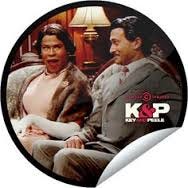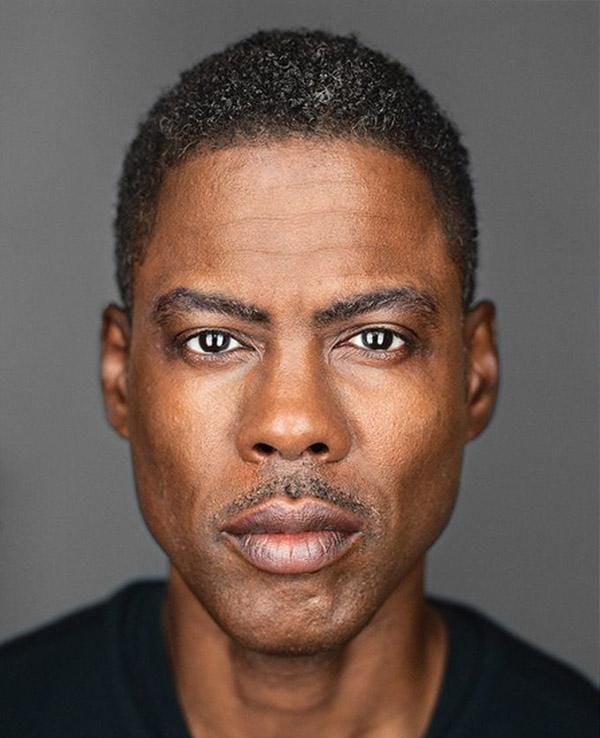So What, Who Cares (vol 1, issue 61) Who is packing your Prime parcels at Amazon
Hello! If you're reading this on Thursday night, go to bed. If you're reading this on Friday morning, Happy National Repeal Day! Celebrate with the beverage of your choice. Or feel free to explain the allure of egg nog to me via email or Twitter.
*
When you order a package from Amazon, chances are good it's been handled by a workforce comprised of elderly nomads and robots. There are an estimated 15,000 Kiva robots zipping around Amazon warehouses all over the country, and they're now pulling things off shelves and delivering them to workers who pack them for shipping. And those workers? If it's the holidays, there's an extra 80,000 of them and a fraction of those are in their 50s to 70s, pulling 10-12 hour days and living out of their RVs.

So what? The robots provide a dual benefit to Amazon: they allow the company to pack in 50% more merchandise per warehouse, and because they eliminate aisles, they also eliminate one of the most unpleasant facets of working in an Amazon warehouse: slogging an estimated 11 miles a night while racing to fulfill a new order every 33 seconds.
If robots are doing all the racing against the clock, that frees up people to do the work robots current cannot, i.e. work that requires visual sorting and manual dexterity. Not that they're going to get rich doing it: One retired couple blogged about their seasonal work in an Amazon fulfillment center, reporting that they grossed a combined $7,634 for 647 hours of work. The couple had 56 days of RV campsite fees paid, which reduced their shelter costs considerably, but once you take that out of the equation, their time in the fulfillment center was worth $5.90 an hour. That is considerably less than the $10-20 often reported in stories about the CamperForce phenomenon.
Who cares? Middle-aged people who have nightmares in which their retirement savings tank, and they're prodded into a nomadic life of manual labor through their sixties and seventies, and their student loans are still not paid off?
Amazon is only one industry sector that offers seasonal employment to older folks in mobile homes: beet farmers are reaching out to nomadic retirees, as well as amusement parks. And given that a rising number of senior citizens are still in the workforce, nearly 50% of people aged 50-59 have no pension coverage and more than 40% of current retirees are at risk of running out of money to meet their living expenses, we're looking at a population that will be grappling with the problem of affordable housing plus low cash flow. They're a population primed for nomadic, physical work.
Then again, although Amazon's warehouse jobs for humans have generated a minor sub-genre of jobs devoted to exposing how bad the Amazon jobs are, they still provide human employment to people who clearly need the money. When robots become clever enough to do all the work, where do the people go?
*

Your holiday pop culture note of the day: If you have ever found "Baby, It's Cold Outside" to be an unsettling tune, then this Key & Peele parody "Just Stay For Tonight" is for you. The dance move at the 0:55 mark always causes me to break down in helpless giggles. The director's notes that go along with the piece are a great little bit of insight into what makes it work.
(And if you want a genuinely disturbing version of "Baby, It's Cold Outside," it doesn't get more unsettling than the John Travolta/Olivia Newton John duet. Travolta sounds legitimately terrified throughout the entire song.)
*

Your non-holiday pop culture note of the day: It is no secret I am fascinated by how movie publicity campaigns are constructed (vol 1, issue 25), but I have to say, the press around Chris Rock's Top Five is well worth following. It is not often you have a media blitz that coincides with current events the way the release of Rock's Top Five is coinciding with the waves of protests calling out the U.S.'s entrenched racism and classism, and Rock's ability to rise to the occasion and speak about his career in the context of our cultural milieu is remarkable.
Also noteworthy: How different publications' approach to Rock basically broadcast their own institutional shortcomings and strengths. For example, in the New Yorker piece, the basic premise is that Rock is a restless talent who's trying to reinvigorate his career and isn't it funny how the movie reflects that? Art is so self-referential sometimes!
By contrast, when the Hollywood Reporter -- which is basically US Weekly for people who love both business and entertainment -- gave Rock his own platform, he let rip with a first-person account that hits this audience where it lives: Professional insecurity. By suggesting that entrenched racism and classism are cutting off vast reservoirs of talent, Rock's basically sounding an alarm on how the gulf between big studios and mass audiences will not work out well for big studios down the line.
The New York piece showcases Rock as sophisticated, pragmatic and willing to embrace the changes of the times. The most trenchant Q&A in the piece:
It’s about white people adjusting to a new reality?
Owning their actions. Not even their actions. The actions of your dad. Yeah, it’s unfair that you can get judged by something you didn’t do, but it’s also unfair that you can inherit money that you didn’t work for.
And finally, Grantland -- which is basically catnip to savvy pop-culture fans in their 30s-50s -- has an interview with Rock where, in a move reminiscent of Robert Downey Jr. cheerfully calling his press junkets "the selling of the soap" -- lays out the mechanics of his relationship with the media ("I’m selling a movie. And I don’t do press unless I’ve got a movie coming out. Like literally, why would I do press?") before spitting out a series of answers positioning himself as older, smarter and more middle-of-the-road than the young guy who created Nat X for Saturday Night Live.
*
Did you miss an issue of So What, Who Cares? The archive is here.
Also, there is now a topic index that tells you what was in each issue. If you're like, "When did she send out a picture of Brandon Routh snuggling a kitty cat?" -- well, now you can find it. (It was November 11, 2014, btw.)
As always, I welcome your feedback and suggestions via email or Twitter. Always let me know what you think about So What, Who Cares? If you really like it, tell a friend to subscribe.

